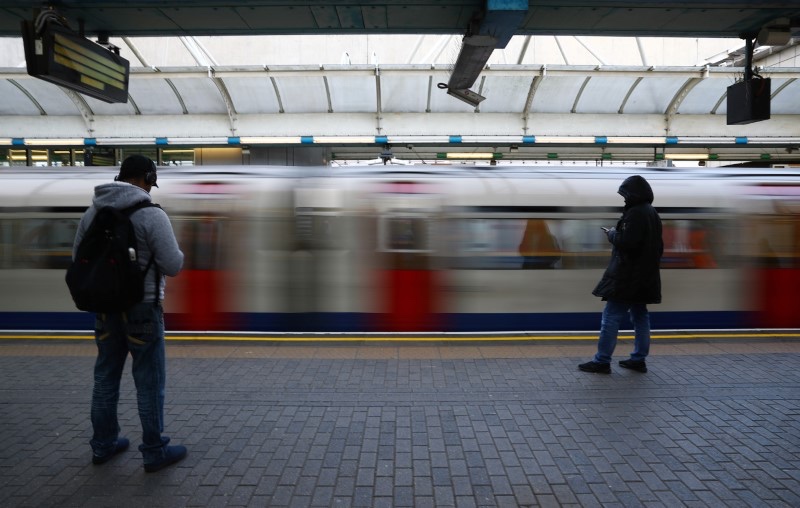London, UK
Thomson Reuters Foundation
The coronavirus pandemic could prove a double blow for modern slaves in Britain as those showing symptoms are unlikely to stop working or seek help, while other victims may be driven further into debt bondage, academics and activists warned on Tuesday.
Most victims who fall ill are unlikely to seek healthcare for fear of being exposed to the authorities and detained, arrested or deported, or because they are forced to keep working in order to survive and pay off debts, several charities said.

Commuters at Hammersmith Underground station as the spread of the coronavirus disease (COVID-19) continues, London, Britain, on 24th March, 2020. PICTURE: Reuters/Hannah McKay
Britain is home to at least 136,000 slaves, according to the Global Slavery Index by the Walk Free Foundation. Victims come from nations such as Albania, Vietnam, China, Nigeria and India, and work in sectors from construction to catering and cleaning.
“The hostile environment [for migrants] may make them feel that not reaching out for medical help would be less risky than staying in an exploitative situation,” Rebecca Chambers, a spokeswoman for Anti-Slavery International, said in a blog post.
“Not accessing healthcare when they need to do so would be detrimental to their health and may end tragically for them and others,” she added. “So while modern slavery is a problem often unseen, coronavirus makes it a direct problem for all of us.”
Rescued slaves in Britain are often detained at immigration centres rather than given support, with some convicted of crimes linked to their exploitation or deported, campaigners have said.
Britain has deported dozens of victims to slavery hotspots in recent years despite fears that they could be re-trafficked, the Thomson Reuters Foundation revealed last August.
“We have heard from survivors in the past who have carried on working with injuries or illnesses,” said Tamara Barnett, head of the Human Trafficking Foundation. “The government needs to make clear that no-one who comes forward will be detained.”
Britain’s Home Office was not immediately available to comment.
“Dire circumstances”
As Britain’s economy shrinks at a record pace and firms shut in the face of the coronavirus, many victims of forced labour could fall further into debt as jobs dry up and they are unable to pay off what they owe, said Andrew Crane of Bath University.
“Exploiters will still be able to charge workers exorbitant fees for accommodation and food, but will likely be paying them less and offering them even less work in order to pay off debts,” said Crane, a professor of business at the university.
“Workers could quickly find themselves in ever more dire circumstances and be forced into greater risk and more serious forms of illegality,” he told the Thomson Reuters Foundation.
For example, victims of trafficking trapped in the sex trade could take more risks with unscrupulous clients as general demand for prostitution drops amid coronavirus, Barnett said.
Several anti-slavery groups said they were concerned that many victims would be isolated as community schemes such as women’s groups ceased, while others could be left homeless and vulnerable after their brief government-mandated support ended.
Despite being hailed as a global leader in the anti-slavery drive, Britain’s landmark 2015 law has faced widespread criticism that it is not being used fully to jail traffickers, drive companies to tackle forced labour, or help enough victims.




